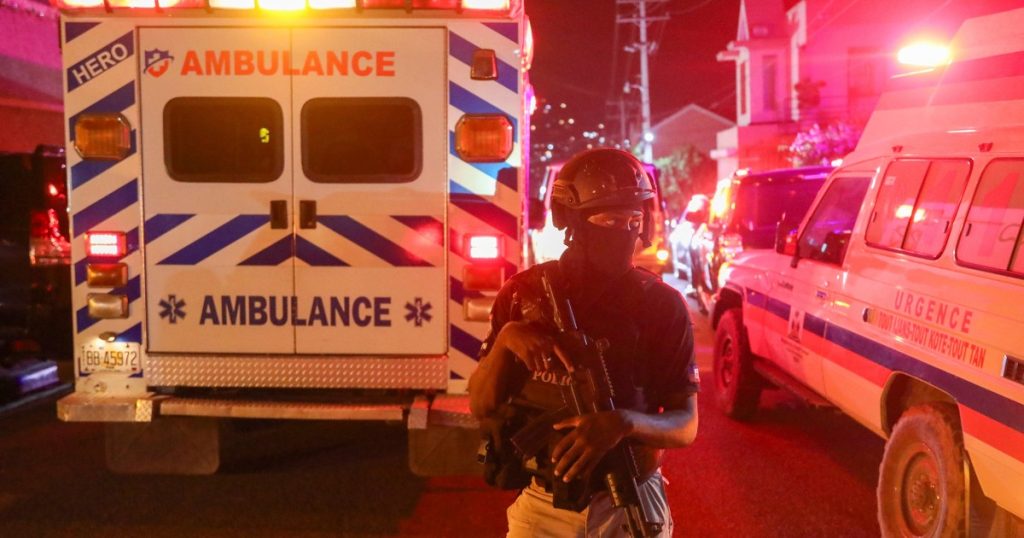Haiti’s newly selected prime minister, Garry Conille, was hospitalized in Port-au-Prince just days after arriving in the country. The reason he was hospitalized was not immediately known, but his office stated that he was feeling unwell after a week of intense activities. Conille was reported to be stable and thanked those who visited him. High-ranking officials, including Haiti’s National Police director and UNICEF’s representative, were seen entering the hospital while onlookers gathered outside.
Conille was chosen as prime minister on May 28 after a complicated selection process. He faces the challenging task of leading Haiti amidst widespread gang violence and the upcoming deployment of a Kenyan police force, delayed due to the lack of a premier after former Prime Minister Ariel Henry’s resignation in April. Henry was out of the country on a visit to Kenya when gang violence erupted, leading to his resignation. Conille arrived in Haiti on June 1 after working as UNICEF’s regional director for Latin America and the Caribbean.
Since arriving in Haiti, Conille has been meeting with officials and visiting different parts of Port-au-Prince, including going on patrol with Haiti’s National Police. He toured the main international airport, which had recently reopened after being closed for three months due to gang violence. Conille also met with leaders of the private business sector and telecommunications companies. He has been working with the transitional council as they debate who should be appointed to the new Cabinet.
The convoluted selection process of the prime minister and the challenges facing Haiti make Conille’s role as the country’s newest leader difficult. The widespread gang violence, lack of governance, and delayed deployment of the Kenyan police force pose significant challenges. Conille’s previous experience as Haiti’s prime minister under former President Michel Martelly may help him navigate the current situation. His efforts to engage with officials and visit different parts of the country show his commitment to addressing the issues facing Haiti.
The sudden hospitalization of Conille raises concerns about his health and ability to effectively lead Haiti during this critical time. The lack of information surrounding his hospitalization and the presence of high-ranking officials at the hospital indicate the seriousness of the situation. The support and well-wishes from those visiting Conille in the hospital reflect the concern for his well-being and the importance of his leadership in addressing Haiti’s challenges.
As Conille continues his recovery and work as prime minister, Haiti remains in a fragile state with ongoing gang violence and political instability. The international community, including the United Nations and UNICEF, will be closely monitoring the situation and providing support where needed. Conille’s leadership and ability to address Haiti’s pressing issues will be crucial in stabilizing the country and moving towards a more secure and prosperous future.


